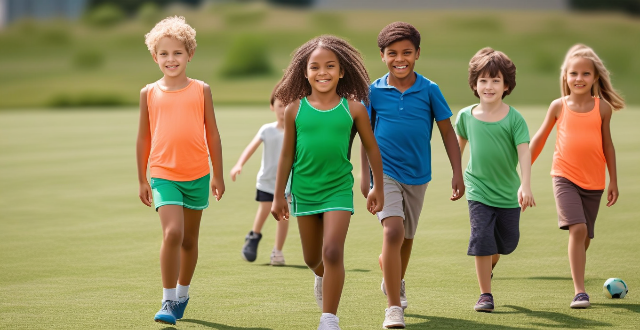Participating in organized sports can be a beneficial experience for children, providing them with opportunities to develop physical skills, socialize with peers, and learn important values such as teamwork and perseverance. However, it is important to consider the appropriate age at which children should start participating in organized sports. Some factors to consider when determining the right age for children to begin participating in organized sports include developmental readiness, socialization and peer interaction, and parental involvement and support. It is essential to ensure that the child has reached a level of physical, cognitive, and emotional maturity that will allow them to benefit from and enjoy the experience. Additionally, it is crucial to ensure that the child is emotionally ready to interact with peers and handle the social dynamics of a team sport. Parental involvement and support are also critical factors to consider when determining if a child is ready to participate in organized sports. By taking these factors into account and ensuring that the child is ready and eager to participate, parents can help set their child up for a positive and rewarding experience in organized sports.

At What Age Can Children Start Participating in Organized Sports?
Participating in organized sports can be a beneficial experience for children, providing them with opportunities to develop physical skills, socialize with peers, and learn important values such as teamwork and perseverance. However, it is important to consider the appropriate age at which children should start participating in organized sports. In this article, we will explore factors to consider when determining the right age for children to begin participating in organized sports.
Developmental Readiness
One of the most important factors to consider when deciding if a child is ready to participate in organized sports is their developmental readiness. Children develop at different rates, and it is essential to ensure that they have reached a level of physical, cognitive, and emotional maturity that will allow them to benefit from and enjoy the experience. Some signs of developmental readiness include:
- Ability to follow simple instructions and rules
- Basic motor skills such as running, jumping, and throwing
- Emotional regulation and ability to handle disappointment or frustration
- Interest and enthusiasm for the sport
It is also essential to consider the specific demands of the sport and whether the child has the necessary physical abilities and coordination to safely participate. For example, a child who is interested in gymnastics may need to have a certain level of flexibility and strength before beginning training.
Socialization and Peer Interaction
Another factor to consider when determining the appropriate age for children to start participating in organized sports is the opportunity for socialization and peer interaction. Organized sports provide children with a structured environment where they can make friends, learn to work as part of a team, and develop important social skills. However, it is crucial to ensure that the child is emotionally ready to interact with peers and handle the social dynamics of a team sport.
Some signs that a child may be ready for socialization through organized sports include:
- Desire to play with other children and engage in group activities
- Ability to share and take turns
- Interest in learning from and emulating older children or coaches
- Comfort with being in a group setting and following rules set by authority figures
Parental Involvement and Support
Parental involvement and support are also critical factors to consider when determining if a child is ready to participate in organized sports. Parents play a crucial role in encouraging their child's participation, providing transportation to practices and games, and supporting their development both on and off the field. It is important for parents to be involved in the selection process of a sport and team that aligns with their child's interests and abilities.
Some ways parents can support their child's participation in organized sports include:
- Encouraging their child's interest in the sport and providing opportunities for practice and play outside of organized activities
- Providing positive feedback and encouragement during practices and games
- Modeling good sportsmanship and respect for coaches, teammates, and opponents
- Being present at games and practices to offer support and cheer their child on
Conclusion
In conclusion, there is no one-size-fits-all answer to the question of when children should start participating in organized sports. It is essential to consider factors such as developmental readiness, socialization and peer interaction, and parental involvement and support when making this decision. By taking these factors into account and ensuring that the child is ready and eager to participate, parents can help set their child up for a positive and rewarding experience in organized sports.